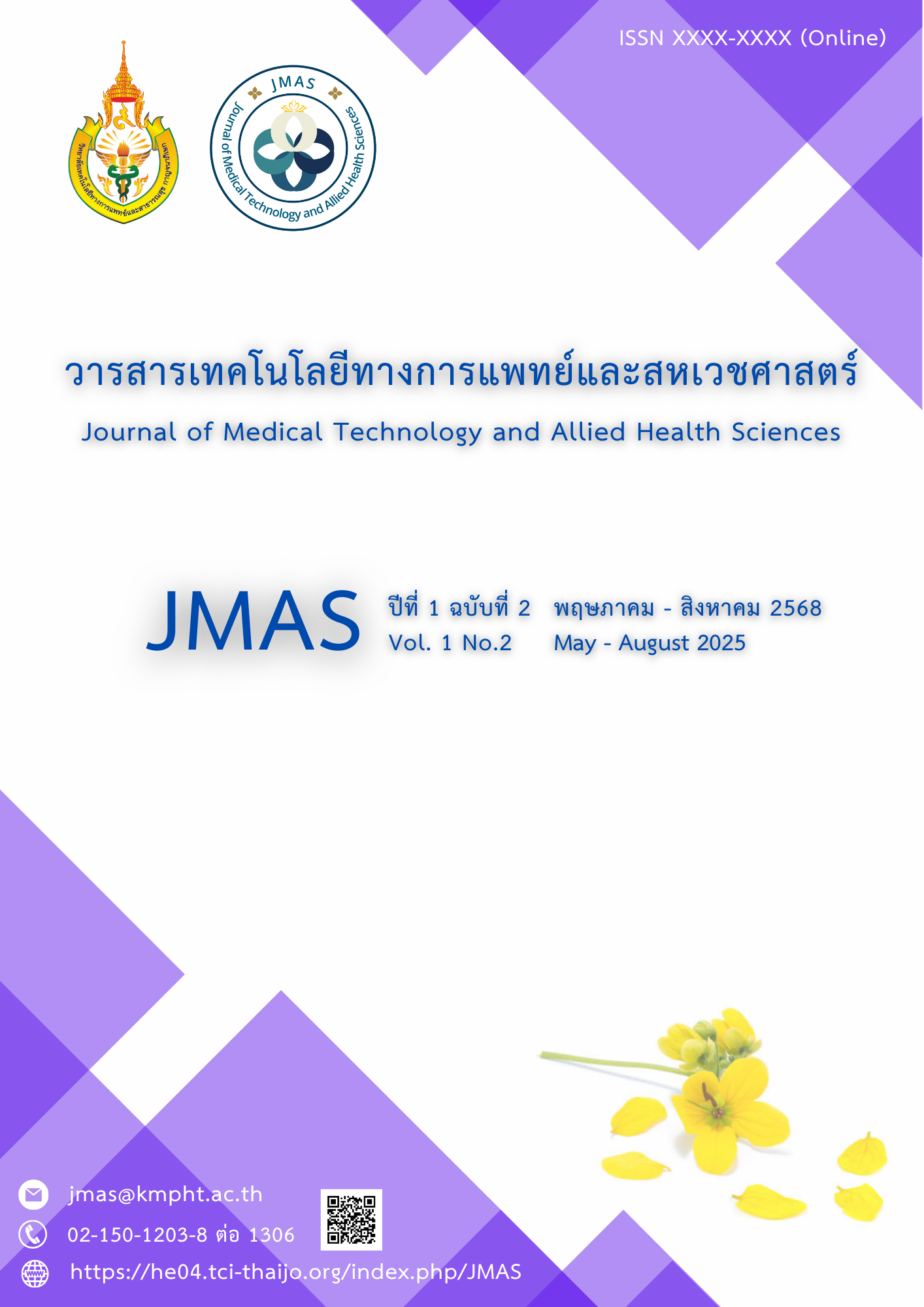การพัฒนาระบบการจัดการยาที่ได้รับคืนจากผู้ป่วย งานบริการจ่ายยาผู้ป่วยนอก โรงพยาบาลหัวหิน
คำสำคัญ:
ยาเหลือใช้, การคืนยา, ระบบการจัดการยาคืนบทคัดย่อ
ยาเหลือใช้ในผู้ป่วยโรคเรื้อรัง โดยเฉพาะในกลุ่มผู้สูงอายุที่ต้องใช้ยาหลายชนิดต่อเนื่องกันเป็นปัญหาที่พบบ่อยในระบบสาธารณสุขไทย สาเหตุหลักมาจากการสั่งจ่ายยาเกินความจำเป็น การปรับแผนการรักษา และการหยุดยาเองของผู้ป่วย ส่งผลให้เกิดความสูญเปล่าทางเศรษฐกิจ ความเสี่ยงในการใช้ยา และผลกระทบต่อสิ่งแวดล้อม โรงพยาบาลหัวหินเอง แม้ว่าจะมีผู้ป่วยส่วนหนึ่งนำยามาคืนที่ห้องจ่ายยาอย่างต่อเนื่อง แต่การขาดระบบจัดการที่เป็นระบบ ทำให้ไม่สามารถนำยาที่มีคุณภาพกลับมาใช้ใหม่ได้ ผู้วิจัยจึงมีแนวคิดในการพัฒนาระบบการจัดการยาคืน เพื่อเพิ่มประสิทธิภาพในการบริหารทรัพยากรยาให้ปลอดภัยและเกิดประโยชน์สูงสุด การวิจัยนี้เป็นการวิจัยเชิงปฏิบัติการ แบ่งออกเป็น 4 ระยะ ได้แก่ การวิเคราะห์ปัญหา วางแผน ทดลองใช้ระบบ และประเมินผล โดยเก็บข้อมูลเป็นเวลา 5 เดือน ใช้สถิติเชิงพรรณนาในการวิเคราะห์ข้อมูล ผลการศึกษาพบว่า มีการพัฒนาแนวทางการจัดการยาที่ได้รับคืนอย่างเป็นระบบ ด้วยการใช้แบบฟอร์มรับคืนยาในการบันทึกข้อมูล มีแนวทางการคัดแยกยาที่สามารถนำกลับมาใช้ได้และไม่สามารถนำกลับมาใช้ได้ และเกณฑ์พิจารณาคุณภาพยา โดยมีจำนวนผู้มารับบริการนำยามาคืนจำนวนรวม 343 คน และสามารถนำยากลับมาใช้ประโยชน์ได้คิดเป็นมูลค่าสูงถึง 564,766.72 บาท โดยยาที่มีมูลค่านำกลับมาใช้ได้สูงสุด คือ Imatinib 400 มิลลิกรัม คิดเป็น 180,958.40 บาท (ร้อยละ 32.05) สาเหตุการคืนยาที่พบมากที่สุด คือ การที่แพทย์สั่งยาเกินวันนัด (ร้อยละ 45.19) รองลงมาคือไม่ทราบสาเหตุ (ร้อยละ 17.20) และการปรับเปลี่ยนวิธีใช้ยาโดยแพทย์ (ร้อยละ 9.33) กลุ่มยาที่มีมูลค่าการคืนยามากที่สุด ได้แก่ กลุ่มยาต้านมะเร็ง คิดเป็นมูลค่า 199,368.10 บาท และกลุ่มยาที่มีจำนวนรับคืนทั้งที่สามารถนำไปใช้ต่อได้และไม่สามารถนำไปใช้ต่อได้ ได้แก่ กลุ่มยาลดความดันโลหิต ระบบการจัดการยาคืนที่พัฒนาขึ้น สามารถลดความสูญเสียจากการใช้ยาได้อย่างมีประสิทธิภาพ ส่งเสริมการบริหารจัดการทรัพยากรยาในโรงพยาบาลได้อย่างเป็นระบบ และสามารถนำไปใช้เป็นต้นแบบการจัดการยาคืนในสถานพยาบาลอื่นได้
เอกสารอ้างอิง
Asmamaw, G., Agedew, T., Tesfaye, B., Sasamo, S., Gena, S., Argeta, M., & Adio, A. (2023). Prevalence of leftover medicines, disposal practices, and associated factors in Arba Minch Town, Southern Ethiopia. SAGE Open Medicine, 11, 1-11. https://pmc.ncbi.nlm.nih.gov/articles/PMC10021103/
Chantapattarankul, P., Thongprong, S., & Thongmee, M. (2018). Survey of Leftover Drugs among Patients with Chronic Diseases at Bangsaphan Hospital, Prachuap Kirikhan. Hua Hin Sook Jai Klai Kangwon Journal, 3(1), 119-125. https://he01.tci-thaijo.org/index.php/hhsk/article/view/175238/125367 (in Thai)
Chantra, C., & Moungkan, J. (2023). Cause of Leftover Drugs in Elderly patients with Chronic disease at. In The 11th Hatyai National and International Conference, (pp. 1957-1967). Hatyai University. http://bit.ly/3EwdCQX (in Thai)
Charoenchokthavee, W., Lertwattanachai, T., Rodhedbhai, W., & Kobwanthanakun, S. (2013). Analysis and Management of Unused Medications Problem in Urban Living Area Wanaporn Charoenchokthavee. Vajira Medical Journal, 57(3), 147-160. https://he02.tci-thaijo.org/index.php/VMED/article/view/17966/15891 (in Thai)
Chiewchantanakit., D. (2024, January). Guidelines for Managing the Problem of Leftover Medicines for the Public. Thai Drug Watch, 15(54), 13-19. https://www.thaidrugwatch.org/download/series/series54.pdf (in Thai)
Gulchusak, P. (2022). Study on the problem of leftover medications in diabetic patients at chronic disease clinic Ban Khwao Hospital, Chaiyaphum province. Chaiyaphum Medical Journal, 42(1), 66-74. https://thaidj.org/index.php/CMJ/article/view/12066/10391 (in Thai)
Sirinawasatien, P. (2018). The efficiency of management the left over medication in diabetic patients in special clinics. Mahasarakham Hospital Journal, 15(2), 111-118. https://he02.tci-thaijo.org/index.php/MKHJ/article/view/195535 (in Thai)
Suwannaprom, P., Niamhun, N., Champoonot, P., Phosuya, C., Chowwanapoonpohn, H., Supakul, S., Chaichana, R., & Laopanichkul, B. (2012). Items and Value of Household Leftover Medicines for Chronic Conditions at Sansai-Luang Sub-district, Sansai District, Chiang Mai Province. Thai Pharmaceutical and Health Science Journal, 7(1), 22-28. https://ejournals.swu.ac.th/index.php/pharm/article/view/2896/2908 (in Thai)
Thavornwattanayong, W., Geesittisomboon, W., Jansuriyakul, W., Srinaunrod, K., & Janpen, S. (2012). Survey of Leftover Drugs and Drug Use Behavior among Patients with Chronic Diseases in Nong Pak Long, Mueang, Nakhon Pathom. Journal of Health Science of Thailand, 21(6), 1140-1148. https://thaidj.org/index.php/JHS/article/view/1199 (in Thai)
Thummawut, W., & Leuvittawat, P. (2014). Survey on the Quantity and Economic Value of Unused Medications Among Outpatients in the Department of Medicine, Siriraj Hospital. Siriraj Medical Bulletin, 7(1), 20-25. https://he02.tci-thaijo.org/index.php/simedbull/article/view/81545/64855 (in Thai)
Toe, J., Orok, E., & Erah, P. (2023). Assessment of knowledge and disposal practices of unused and expired household medicines in a community in Liberia. Exploratory Research in Clinical and Social Pharmacy, 12, 1-6. https://pmc.ncbi.nlm.nih.gov/articles/PMC10696106/
ดาวน์โหลด
เผยแพร่แล้ว
รูปแบบการอ้างอิง
ฉบับ
ประเภทบทความ
สัญญาอนุญาต
ลิขสิทธิ์ (c) 2025 วิทยาลัยเทคโนโลยีทางการแพทย์และสาธารณสุข กาญจนาภิเษก

อนุญาตภายใต้เงื่อนไข Creative Commons Attribution-NonCommercial-NoDerivatives 4.0 International License.



